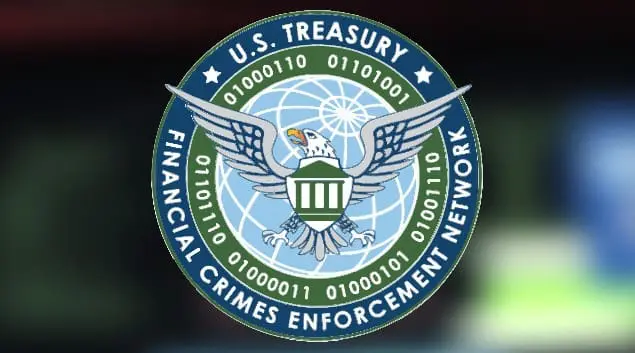
Insights
April 8, 2025
Important Update: New BOI Reporting Requirements Under FinCEN – Are You Ready?
In Financial Planning, Tax Planning, Wealth Strategy

Update April 7, 2025: FinCEN Removes Beneficial Ownership Reporting Requirements for U.S. Companies and Persons
On March 21, 2025, The U.S. Department of Treasury issued a press release announcing that its Financial Crimes Enforcement Network (FinCEN) is issuing an interim final rule that eliminates the requirement for U.S. companies, U.S. persons, and domestic reporting companies to report beneficial ownership information (BOI) under the Corporate Transparency Act. Only entities formed under the law of a foreign country will be considered “reporting companies” for the regulation.
FinCEN is accepting comments on this interim final rule with the intention of finalizing the rule this year. We will continue to follow this process and provide any relevant updates.
You can read the latest press release at https://www.fincen.gov/news/news-releases/fincen-removes-beneficial-ownership-reporting-requirements-us-companies-and-us
Update March 6, 2025: Suspension of the Enforcement of CTA Against U.S. Citizens and Domestic Reporting Companies
On March 2, 2025, the U.S. Department of the Treasury issued a press release announcing that it will not enforce penalties or fines associated with the Corporate Transparency Act’s Beneficial Ownership Information (BOI) regulatory deadlines (currently set to March 21, 2025), nor will it enforce penalties or fines against any U.S. citizens or domestic reporting companies.
Furthermore, the U.S. Department of the Treasury has also announced that it is planning to propose rulemaking that will result in the BOI rule applying only to foreign reporting companies.
We will continue to follow this process as it unfolds and provide any relevant updates.
Read the press release at https://home.treasury.gov/news/press-releases/sb0038
Update February 25, 2025: BOI Reporting Requirements Reinstated
The Corporate Transparency Act (CTA) is back in effect after the U.S. District Court for the Eastern District of Texas lifted the injunction on February 18, 2025. This means that business owners are required to file their initial Beneficial Ownership Information (BOI) reports by the new deadline of March 21, 2025.
The Department of Treasury’s Financial Crimes Enforcement Network (FinCEN) will be assessing its reporting rule, looking at options to prioritize high-risk entities while minimizing the regulatory burden for businesses.
Read the full FinCEN Notice here. You can file your BOI report at https://boiefiling.fincen.gov/ and find additional information at https://fincen.gov/boi.
Update (December 30, 2024): BOI Reporting Requirements on Pause Again with the Reinstatement of the Injunction
On December 26, the Fifth Circuit Court of Appeals vacated its earlier decision removing the preliminary injunction that blocked enforcement of the Corporate Transparency Act (CTA), such that BOI Reporting requirements are once again on pause. Given the challenges to the CTA, the Court decided that the obligation to comply with the CTA will remain on hold while the injunction is in effect. The Court has scheduled arguments on the injunction for March 25, 2025.
With this decision, companies are not currently required to file beneficial ownership information with the Department of Treasury’s Financial Crimes Enforcement Network (FinCEN), although they may do so voluntarily. Please see below for details on filing.
We will continue to follow this process as it unfolds and provide any relevant updates.
Update December 24, 2024: BOI Reporting Requirements Reinstated
The preliminary injunction blocking enforcement of the Corporate Transparency Act (CTA) has been overturned by the Fifth Circuit Court of Appeals as of December 23, 2024, with the result being that the beneficial ownership information (BOI) reporting requirements are back in effect. The reporting deadline has been shifted to January 13, 2025, a slight extension from the previous deadline of January 1, 2025. Some companies that were registered on or after December 3, 2024 or that qualify for disaster relief may have longer to file their initial BOI reports.
Business owners should prepare to make any required filings to the Department of Treasury’s Financial Crimes Enforcement Network (FinCEN) by the deadline. See below for details on how to file.
BOI Reporting Requirements
If you are a business owner or part of a family office, there’s a critical new regulatory requirement that may affect you: the Beneficial Ownership Information (BOI) reporting requirement under the Corporate Transparency Act (CTA). This regulation, enforced by the Financial Crimes Enforcement Network (FinCEN), is part of a sweeping initiative to increase transparency around the true ownership of entities like corporations, LLCs, and similar business structures. The deadline to file is January 13, 2025, so it’s essential to act now to ensure compliance.
What You Need to Know:
According to recent estimates by FinCEN, 32 million entities are subject to these new reporting rules. If your business entity falls under this umbrella, you need to act soon to avoid non-compliance and potential penalties. With the deadline approaching on January 1, 2025, and a significant number of businesses having not yet filed, it’s clear that people may not yet be aware of this critical new regulation.
Update: New FinCEN Spousal Reporting Requirement for Community Property States
Per recent guidance issued by FinCEN, married Beneficial Owners in community property states who hold more than 25% ownership in a reporting company may now be required to report their spouse as a Beneficial Owner. If you reside in a community property state and did not include your spouse as a Beneficial Owner, you should update your FinCEN filing by December 31, 2024, to avoid penalties. For those who haven’t filed yet, spouses may also need to create their own FinCEN IDs.
Steps for Spouses to Create a FinCEN ID
- Create an Account:
- Visit the FinCEN Login Portal to register.
- Set Multi-Factor Authentication:
- Choose a secure method, such as text or voice verification.
- Complete the Application:
- Provide:
- Full name
- Date of birth
- Residential address
- Upload a valid ID (e.g., driver’s license or passport).
- Provide:
This requirement applies to businesses in community property states, including Washington (WA), California (CA), Idaho (ID), and others like Arizona, Nevada, and Texas. Oregon (OR) is not a community property state.
For more details, review the full article below and take action promptly to avoid fines and penalties.
Simple Entities: Quick and Easy Filing for Single Beneficial Owners
If your business is a simple entity with only one beneficial owner, the process to comply with the BOI reporting requirement is straightforward and can likely be completed in less than 15 minutes on FinCEN’s BOI E-Filing website (FinCEN BOI E-Filing). You will need to report your name, date of birth, address, and an identification number like a driver’s license or passport—along with uploading a copy of this identification document for verification.
To help guide you through the process, FinCEN has provided a helpful 5-minute video explaining how to complete the report for single beneficial owners. You can watch the video here: How to File BOI for a Single Beneficial Owner.
FinCEN has also released a Small Entity Compliance Guide that explains step-by-step instructions for filing, which you can access here: FinCEN BOI Small Compliance Guide.
Complex Entities: Involve Your Attorney Early
For more complex entities—such as those with multiple beneficial owners, layered ownership structures, or entities with intricate control arrangements—the filing process becomes much more involved. While the Small Entity Compliance Guide is a useful resource, many businesses will still have questions about ownership thresholds, reporting requirements, and the proper interpretation of the rules.
It is crucial to involve your attorney early in the process. Legal professionals are best equipped to help navigate the complexities of these filings, and as the January 1, 2025, deadline approaches, attorneys are likely to become overwhelmed with requests. To avoid delays, now is the time to schedule a meeting with your legal advisor to review your entity’s structure and ensure you understand the requirements.
Who Needs to File?
The BOI reporting requirement applies to most small and closely held business entities, specifically “reporting companies.” These include:
- Corporations: Any corporation created by filing with a state or tribal jurisdiction in the U.S. must file.
- Limited Liability Companies (LLCs): Any LLC formed in the U.S. through a state or tribal filing is subject to the BOI requirement.
- Other Similar Entities: Entities created by a filing with a secretary of state or similar state or tribal office, such as certain limited partnerships (LPs), limited liability partnerships (LLPs), business trusts (statutory trusts), and some other entities not specifically classified as corporations or LLCs.
In essence, if your business entity is required to file with a state or tribal government in the U.S. to be legally formed, it’s likely subject to the BOI reporting requirement.
What Information Needs to Be Reported?
If your entity is subject to these rules, you’ll need to file BOI reports containing the following information on each “beneficial owner” and, in many cases, the company’s “applicant”:
1.Beneficial Owner Information: You must report the full legal name, date of birth, current address, and an identification number (like a driver’s license or passport) for each person who:
-
- Owns or controls at least 25% of the entity’s equity interests, or
- Exercises substantial control over the entity (such as making key decisions on behalf of the business).
Important: For more complex entities, it can be difficult to ascertain who should be reported as a beneficiary owner. Your attorney should be involved in providing guidance.
2. Company Applicant Information: This includes the person who filed the company’s formation documents. In some cases, this might be an attorney or registered agent.
Exemptions – Who Does Not Need to File?
While many entities are subject to the BOI reporting requirement, the law provides 23 exemptions for certain types of entities that are already subject to substantial regulatory oversight or that pose a lower risk of misuse. The most notable exemptions include:
- Large Operating Companies:
- Businesses with 20 or more full-time employees in the U.S.
- Businesses with more than $5 million in annual gross receipts or sales (as reflected in prior year tax returns).
- Must have an operating presence at a physical office within the U.S.
- Publicly Traded Companies:
- Companies that issue securities registered under Section 12 of the Securities Exchange Act of 1934, or that are required to file supplementary and periodic reports under Section 15(d) of that Act.
- Regulated Entities: Entities already subject to substantial federal and state regulation, including:
- Banks and bank holding companies.
- Credit unions.
- Broker-dealers and registered investment companies.
- Insurance companies regulated by state authorities.
- Public accounting firms registered under the Sarbanes-Oxley Act.
- Inactive Entities: Businesses that:
- Were formed more than 12 months ago.
- Are no longer engaged in active business.
- Have not sent or received funds over $1,000 in the last year.
- Do not own any active assets.
- Subsidiaries of Exempt Entities: Any entity that is wholly owned by one or more exempt entities (such as a subsidiary of a regulated bank or large operating company) is exempt from BOI reporting.
- Certain Tax-Exempt Entities: Entities recognized as tax-exempt under the Internal Revenue Code, including:
- Nonprofit organizations such as 501(c)(3) charities.
- Religious organizations.
- Dormant Entities: In some cases, entities that have been inactive for many years and meet specific criteria regarding assets and financial activity can be exempt from filing.
Why Does This Matter?
The BOI reporting requirement is designed to combat the misuse of anonymous entities in money laundering, tax evasion, and other illicit activities. However, these rules impact a broad spectrum of legitimate businesses, many of which may not be aware that they need to file.
Penalties for Non-Compliance
Failing to comply with the BOI reporting requirement can lead to substantial penalties. Entities that do not file their required report could face:
- Civil fines of $500 per day, accumulating for each day the report is late.
- In severe cases, criminal penalties including fines of up to $10,000 and imprisonment for up to two years for willful violations.
Given the severity of these penalties, it’s essential to ensure your entity is compliant well before the reporting deadline.
What Should You Do Now?
- Identify Whether Your Entities Are Affected: Work with your financial and legal advisors to determine whether your business entities are subject to the BOI reporting requirement.
- Gather Beneficial Ownership Information: Ensure that you have the necessary information on all beneficial owners, including name, address, date of birth, and an identifying number such as a driver’s license or passport. Be prepared to upload copies of these documents (not just the identification number).
- Consult Your Legal Advisor Early: Given that attorneys will be overwhelmed by the volume of filings, it’s important to reach out now to ensure your entity is compliant before the deadline.
Have Questions?
For further clarification, FinCEN has published a helpful FAQ page covering many of the details of this new reporting requirement. You can find more information here: FinCEN BOI FAQs.
Final Thoughts
For our wealth management clients, this is an important reminder that the regulatory landscape continues to evolve. Ensuring your compliance with the new BOI reporting requirement is critical, especially as the majority of impacted entities have yet to file. The penalties for non-compliance are severe, including hefty fines and possible criminal charges. Proactive planning is key to avoiding the rush and ensuring you meet the deadline without penalty. Reach out to our team to discuss how we can help guide you through this process.
Related Articles

July 9, 2025
The “One Big Beautiful Bill”: Key Tax Provisions



July 7, 2025
The Professional Trustee: A Key to Secure and Sound Estate Management


June 27, 2025
Diversified Estate Planning for LGBTQ+ Families
